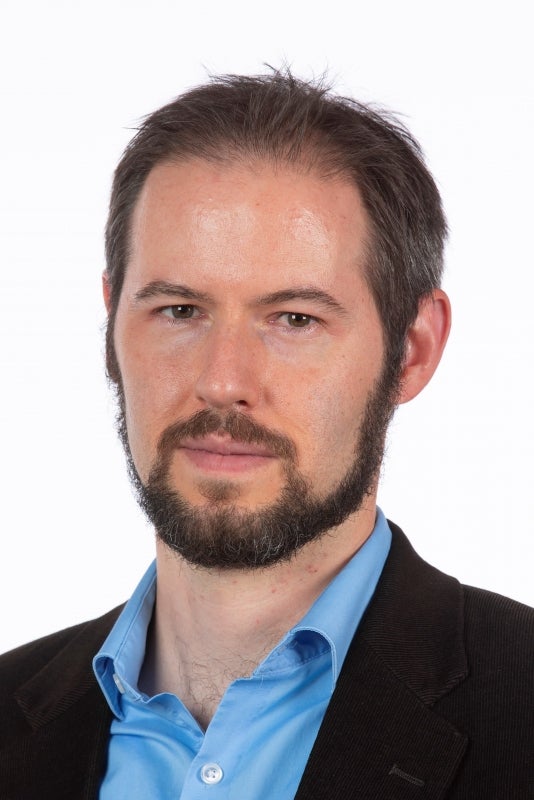Proteins are a significant class of bio-manufactured molecules used as therapies (e.g. antibodies, growth factors) and industrial catalysts (e.g. hydrolases). Cell therapies (e.g. Car-T cells, stem cells) are another growing class of bio-manufactured products. In each case, the limitations of time and cost inherent in cell-based manufacturing dramatically reduces the ability to rapidly prototype, test, and optimize new protein and cell products. Recent work in our group has centered on the design of novel protein and cell sensors, coupled to cost-effective cell free expression techniques to improve the throughput of design, and provide the level of data necessary for machine-guided (artificial intelligence) optimization and process control. This talk will cover new optical nanoprobes based on near-infrared, fluorescent single walled carbon nanotubes (SWNT) for screening hydrolytic enzyme activity, protein binding, and cell membrane disruption. It will also cover our group’s contributions to frugal cell-free techniques including high volume cell extract processing, extract improved for disulfide bond formation, anaerobic preconditioning of extract for improved yield especially in microtiter plates, and protocols for rapid use of gene fragments chemically synthesized. Finally, our advances in radio frequency based resonant sensors for suspended and adherent cells will be detailed. This final vignette will also give an opportunity to share our group’s interest and approach to technology transfer, by sharing the progress of Skroot Laboratory Inc.

Nigel F. Reuel is an Associate Professor of Chemical and Biological Engineering at Iowa State University and is a Jack R. and Carol A. Johnson Faculty Fellow and College of Engineering Entrepreneurial Fellow. He received his PhD in Chemical Engineering at MIT in 2014 under the guidance of Prof. Michael Strano. After graduating, he attempted to commercialize his PhD work in a startup, Volvox Biologic Inc. (Boston), and then consulted at a larger life science tool company that obtained the startup IP (Maryland). He then worked as a Research Investigator (PI) at DuPont’s historic Central Research and Development campus (Wilmington, DE) for two years on projects ranging from wireless power transfer, sensors, and precision agriculture. He was then promoted as the corporate technology scout, where, for 8 months, he traveled to universities and incubators to find technology for the CTO office at DuPont. Although this was an exciting role at a large company, he quickly realized that making technology is more stimulating than finding it and was pleased with the opportunity to come to ISU and become an entrepreneurial-minded professor. Currently his group has over 15 active technology disclosures at ISURF, two granted ISU patents, and three startup company offshoots (Skroot Laboratory Inc., Frugi Biotech Inc., and Zymosense Inc. which have earned >$2M in federal grants). Dr. Reuel’s work has been recognized by the NSF Career Award (2021), NIH Outstanding Early Investigator Award R35 (2020), 3M Nontennured Faculty Award and BMES Advanced Biomanufacturing Junior Investigator Award (2020). See more at www.reuelgroup.org or follow @reuelgroup on Twitter.

